

60 mm ƒ/2.8 Macro 2:1
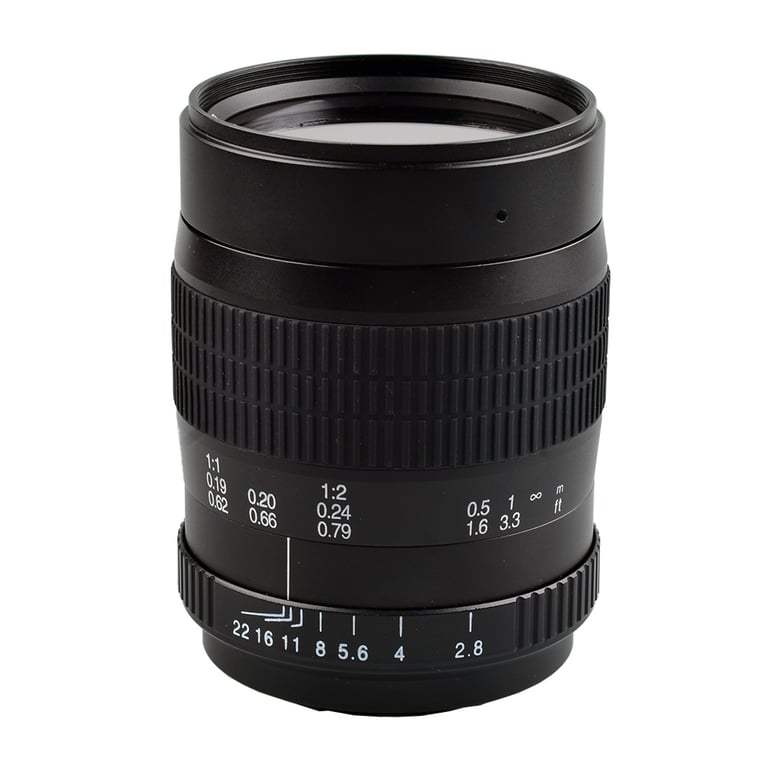

Back to lens review once again! Much pleasured to have received the Lightdow 60mm (but looks available from DöRR and Oshiro too). At first impression this Lightdow looks like very similar of other lens branded LAOWA, looks like their old projects are now available also in other brands too. BEFORE START TO READ ALL: this is a review of a FULL FRAME lens used in one APS-C sensor (I use one aps-c for macros because of the crop factor)
Let's analyze in details this 60mm: the body is in metal material (I think some kind of aluminium/magnesium alloy); the grip given by the big focus ring is very precise and fluid but not so smooth (and sincerly is one aspect which I like, sometimes is very difficult to have a precise set of a simply macro lens so, nice feature!); the diaphragm is declicked and, as the focus ring is, good in settings but a bit falsed about the print of the value numbers: not so precise but not so a big problem. The bayonet is in metal, well structured and is completely free of any kind of electric contact: no pins for focus or for any other kind of communication for the camera.
In front of the lens we can install filters of 62mm size but, as you can see in the pictures (which I want to remember you: if you click in it you can enlarge the view of any single picture of this review) we already find one fixed element glass in front of the lens, looks like an high quality uv protector in it: VERY USEFUL especially if we think to use this lens for super macros, very close to drops (for example). Obviously is evident which this element got protective coatings applied on it.
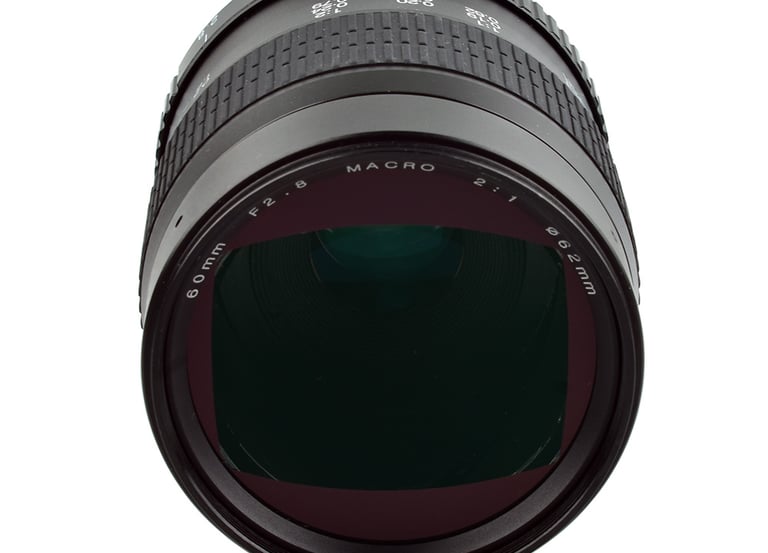

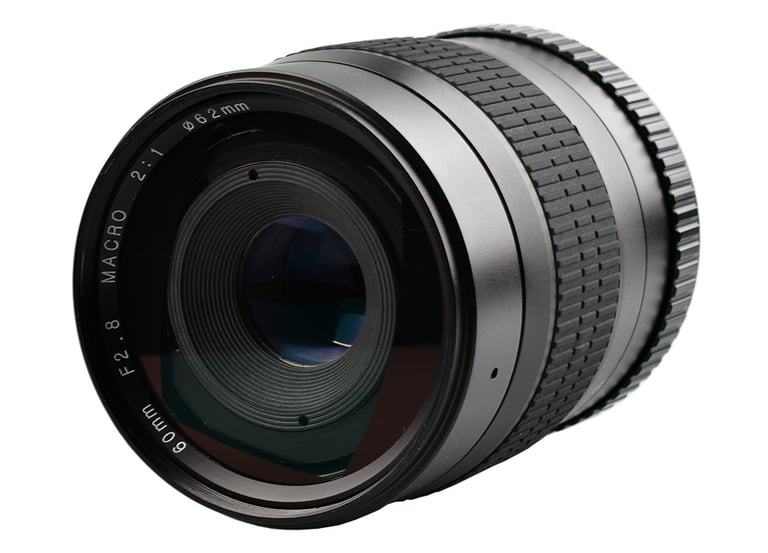

But let's talk about the optic elements and the structure of the lens inside the metal body: this lens, as the most popular version (the LAOWA) is structured with optic scheme of 9 lens in 7 groups, got 14 rounded diaphragm blades and is Internal Focus, so you don't have to expect the barrell excurtion: super if consider which you got the possibility to focus VERY CLOSELY to the subject (more or less 5 - 6 cm) in 2:1 magnification. Another good aspect of the Lightdow 60mm Macro is that you got the possibility to focus from infinite to 6cm with a true magnification without have the necessity to use macro extension tubes, very few lens can do this! Probably no one at this price! About the possibility to focus VERY WELL with this kind of magnifications, huh, the 60mm is not the top but is not so impossible to do. For sure is recommended to use this lens with some precision macro rail, will be the best solution... so the focus ring start to be useful just to set the magnification (which got specific printed values in the body: from 1:2, 1:1, 1.5:1 and 2:1). Very cool huh? But let's see how performs in the test chart/sheet To have all complete list of the RAW files, please download from here




Well, checking this collections of 150% crops, the most evident and strange situation is when the 60mm is used from infinite to, more or less, 1mt of focus distance: the image result is "blurry" or better doubled as a "ghost" image on it and the only reason which could cause this is the protective element so: if you got to use this lens for different photographic typologies, it is advisable to be used from ƒ/5-5.6
but when the 60mm start to be used as macro...
... looks like the lens say: ok, now I show you what I'm able to do.
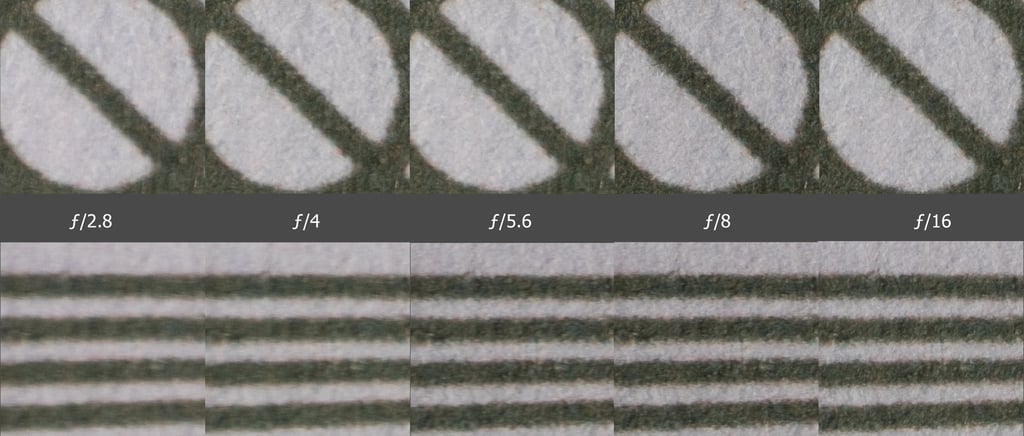

centers
corners
considering the crop of 150%, the Lightdow 60mm used with Macro factor of 1:2 start to be very interesting: the center of the lens is pretty definite since ƒ/4 with top of performances at ƒ/8, from ƒ/16 diffraction start to be a bit invasive but is 90% still ok. Corners gradually gain definition with top performances at ƒ/8, acceptable quality at ƒ/2.8, nice from ƒ5.6. The ghost effect is no more evident, the lens works good now.
ok, now things get really serious...!
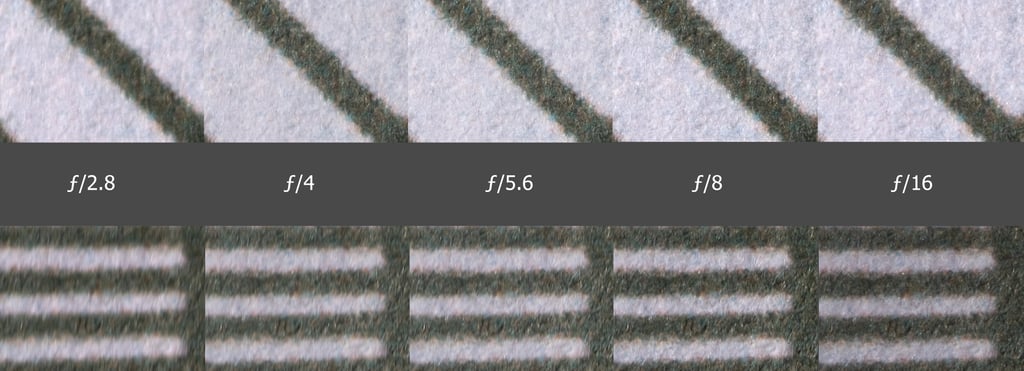

Centers
corners
Considering the crop of 150%, the Lightdow 60mm used with Macro factor of 1:1 improve again the performances, the center is truly sharp from ƒ/4 to ƒ/8 and more, corners are nice at ƒ/2.8 too but still not so clear, from ƒ/4 situation increase a lot, diffraction @ƒ/16 start to be a bit evident but the result is still good.
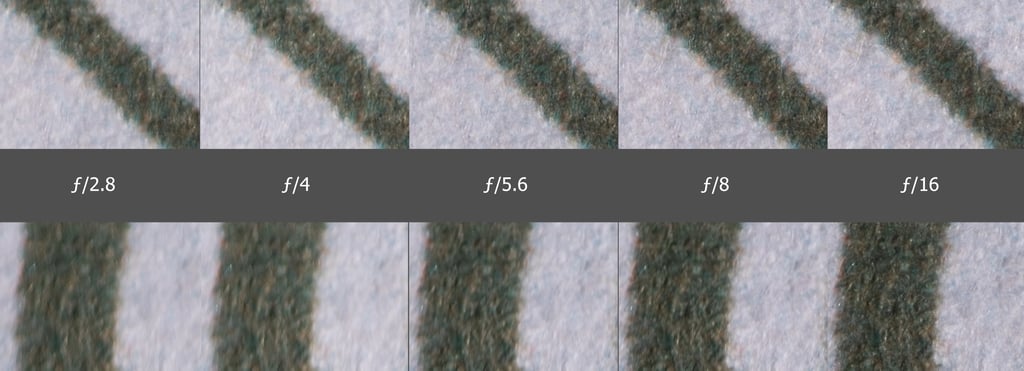

centers
corners
and in the end, considering the crop of 150%, the Lightdow 60mm used with Macro factor of 2:1 @ ƒ/2.8 the result is pretty nice, a bit of fall of details especially in the corners but the most interesting thing is that corners and centers both improve result more and more without have problems of diffraction. It is impressive to see hairs of the paper in the middle of the ink print.
before the conclusions I want to show you how magnification ratio really means in macro photography and how is important to have all this in one single lens without install macro tubes. (from 1mt, full A4 sheet, 1:2, 1:1, 1.5:1, 2:1)
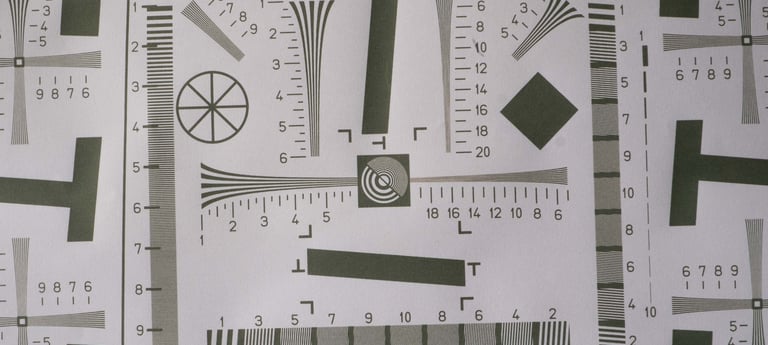









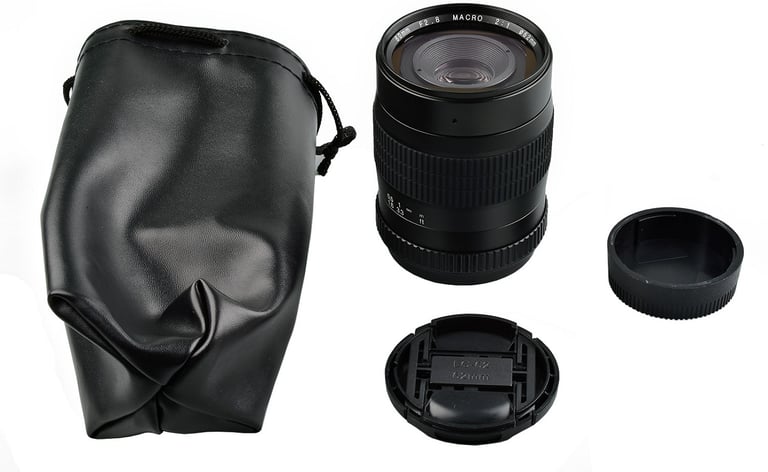

Conclusions and impressions: this lens is GREAT, especially used in APS-C sensors (from how we have seen corners are not the top and in full frame probably are more bad but this could be not so significant if our macro photography got central subject, as more or less happens). One of the best things is that the lens have a superb capacity to handle the chromatic aberrations (I've see no one, usually in test charts happen to see a lot!). For sure is a nice and economic solution to carry on a lot of possibilities to snap from normal to supermacro photos passing from close up and normal macro photograpy! Sharp as hell especially in his specific role; No C/A at all; INCREDIBLE range of magnification; SUPERB DESTRUCTIVE BOKEH (thanks to the 14 rounded blades and the large aperture); Cheap; Compact; Well builded; Vignetting in full frame Ghost effect if used NOT AS MACRO @ƒ/2.8 Distortion at corners if used in FULL FRAME
